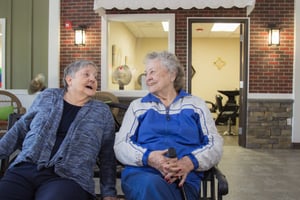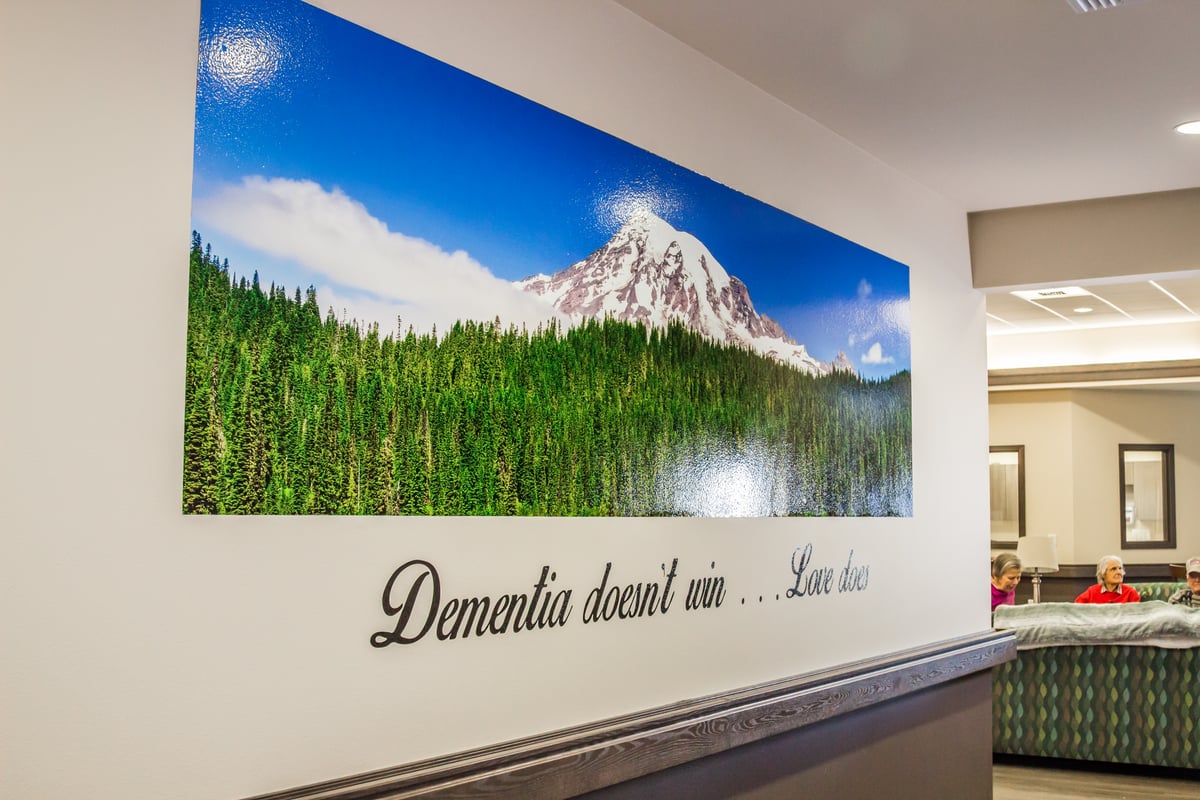According to Mental Health America, “between 3% and 14% of older adults meet the criteria for a diagnosable anxiety disorder, and a recent study from the International Journal of Geriatric Psychiatry found that more than 27% of older adults… have symptoms of anxiety that may not amount to a diagnosis of a disorder, but significantly impact their functioning. The most common type of anxiety among older adults is Generalized Anxiety Disorder, or GAD, the persistent and excessive worry about numerous, different things.However, anxiety disorders in seniors sometimes are associated with a traumatic event such as an accident or illness diagnosis in yourself or a loved one. Those dealing with GAD suffer from constant worries about health issues, money, family problems, or possible disaster – even when there is little to no cause for these worries. Older adults with GAD may also experience symptoms such as:
- Fatigue
- Chest pains
- Headaches, trembling or twitching, feeling out of breath, and hot flashes
Fieldstone Communities understands that, like any medical condition, proper diagnosis and treatment is the key to managing anxiety. It is also important to know the risk factors and signs of anxiety in seniors, especially those living alone or independently.
Risk factors of Anxiety in Seniors include:
(These attributes can increase the likelihood of an older adult developing an anxiety disorder.)
- Side effects of certain medications – Steroids and bronchodilators/inhalers, among other medications, have been linked to anxiety disorders, with an emphasis on those that are older.
- Chronic medical conditions – Seniors dealing with conditions such as cardiovascular disease including arrhythmias and angina or diabetes have a higher risk of experiencing anxiety due to the prolonged medical attention needed to regulate these disorders.
- Physical limitations in daily activities – Seniors who begin to face limitations in their physical abilities, specifically impacting daily tasks, may start to experience feelings of anxiety, worry, and depression.
Sign of Anxiety in Seniors include:
- Unwarranted worry or fear
- Refusing to do routine activities or being too preoccupied with routine
- Avoiding social situations
- Overly concerned about safety
- Hoarding or collecting
- Depression
Like depression, anxiety disorders often go unrecognized or untreated in older adults. In many cases, seniors experiencing anxiety also encountered an anxiety disorder (perhaps unrecognized) when they were younger.
Fieldstone Communities understand the changes that can accompany aging—poor health, memory problems, and losses—which can lead to anxiety. Older adults, specifically in independent living, may have a variety of fears that contribute to anxiety. The fears may include:
- A fear of falling
- Fear of being unable to afford living expenses and medication
- A fear of victimization
- Worry about dependence on others
Anxiety Screening
If you or someone you know is experiencing signs of anxiety, an easy way to determine if you should consider additional treatment is with a mental health screening. You may be encouraged to visit a health care provider to confirm a potential anxiety disorder diagnosis. Again, like any ailment, once an anxiety disorder is acknowledged, it can be treated.
For more information about Fieldstone Communities or to learn about our services, visit our website and schedule a tour today.



